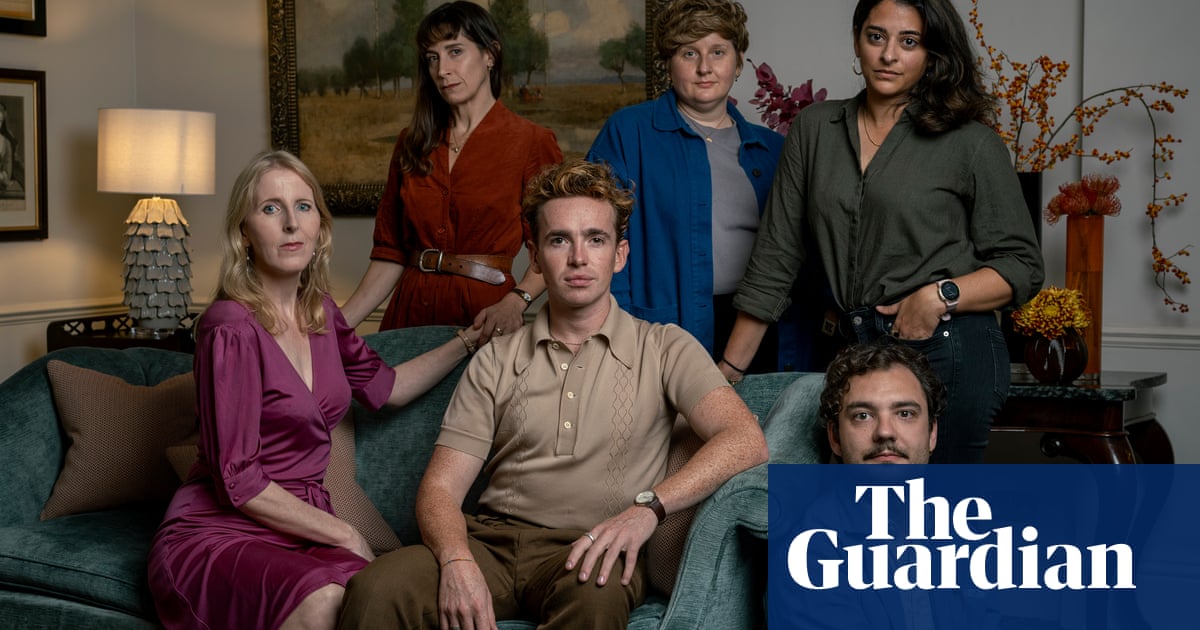
All four of my grandparents survived the second world war, and all four were scarcely willing to talk about it, having either survived the siege of Leningrad or come back from the frontline wounded. On the rare occasions they did, their memories would leave them devastated.
The lifelong PTSD they experienced was quite possibly one of the reasons I became a psychologist. I wanted to do something to end the vicious circle of trauma, abuse, self-neglect and fear. But during my training, I could never have predicted the way I would be applying my skills a decade later.
On 25 February, the day after the Russian invasion of Ukraine, I volunteered to join several crisis hotlines where psychologists were working to support those affected by the war. I couldn’t stop the war, but at least I might try to lessen the damage. My colleagues come from many different countries – some of the Ukrainian psychologists kept working between bombings, while others had evacuated to a safer place. Quite a few of us, myself included, are living abroad in safety — a privilege too often taken for granted.
During the first weeks of the war, most of the Ukrainian people who texted or called us had either just been evacuated or were still in areas of heavy shelling. Those who managed to escape were suffering from survivor’s guilt, along with shock from the war in general. Those who stayed were experiencing shock in a different way, trying to navigate through their daily spikes of anxiety.
My first client was a person besieged in Ukraine. Their whole family had been hiding in a bomb shelter for days and they were experiencing panic attacks, partly from the sudden responsibility of having to care for elderly relatives and beloved pets. They had to make the kind of decisions no one should have to face.
As the war developed, everyone’s stress tolerance was wearing thinner and thinner. Those who fled Ukraine reported apathy and a loss of the will to live. Old traumas have resurfaced, tightening their grip and making it harder to breathe. Those who were still besieged were getting weaker mentally and physically, and they were finding it harder to cope with the sleep deprivation and constant levels of tension and alertness. In such situations, the main way we can offer support is by validating the person’s feelings; helping them find things they can control; and finding self-regulatory techniques that work, such as body relaxation or breathing techniques.
It became the eerie norm to receive text messages from people who had managed to come online in pauses between hiding in the shelter from bombs. However, none of us could get used to having to guess whether a delay in response meant the person had no network connection, or that they were no longer alive. Messages such as “I feel drained”, “I need an urgent vent call” and “I need to talk to someone, I feel it’s taken a toll on me” started to appear in our internal specialists’ support chats more often.
As a response to this, psychologists who specialise in supervision support started to organise webinars and video conferences in order to help each other work through the tension generated by the sessions. A group of dance movement therapists has recently launched a series of virtual meetups where they show how dance and movement can be used to cope with stress. I find such initiatives very important: if we burn out now, we won’t be able to help.
Messages such as this keep us going: “Thank you for helping me find the strength to let my husband go to war”; “Thank you for this talk, I needed to be heard. I found the courage to try and evacuate, and I’m in a safe place now.”
My grandma – the only grandparent still living – struggles to relive her wartime memories without tears. But she emphasises the importance of truth, especially during the times we’re living in, and of preserving these memories. Lately, my family and I have been spending hours on video calls with her as she shares them with us.
To honour my colleagues’ work I recently started a documentary project, taking their portraits via video calls. It feels important to make a record of this almost invisible part of war. When I publish the project later this year, I hope the war will be over. But a huge volume of trauma repair work is still to be done.
Anna Shilonosova is a documentary photographer and assistant psychologist currently based in the UK
If you know someone who might need help and support from a Ukrainian- or Russian-speaking psychologist, please let them know about these services; they are free of charge and available 24/7: https://t.me/PsihologDopomogaWarInUa_2022; www.instagram.com/psy.for.peace; https://t.me/psyhelp_Ukraine; https://sppu.com.ua/












